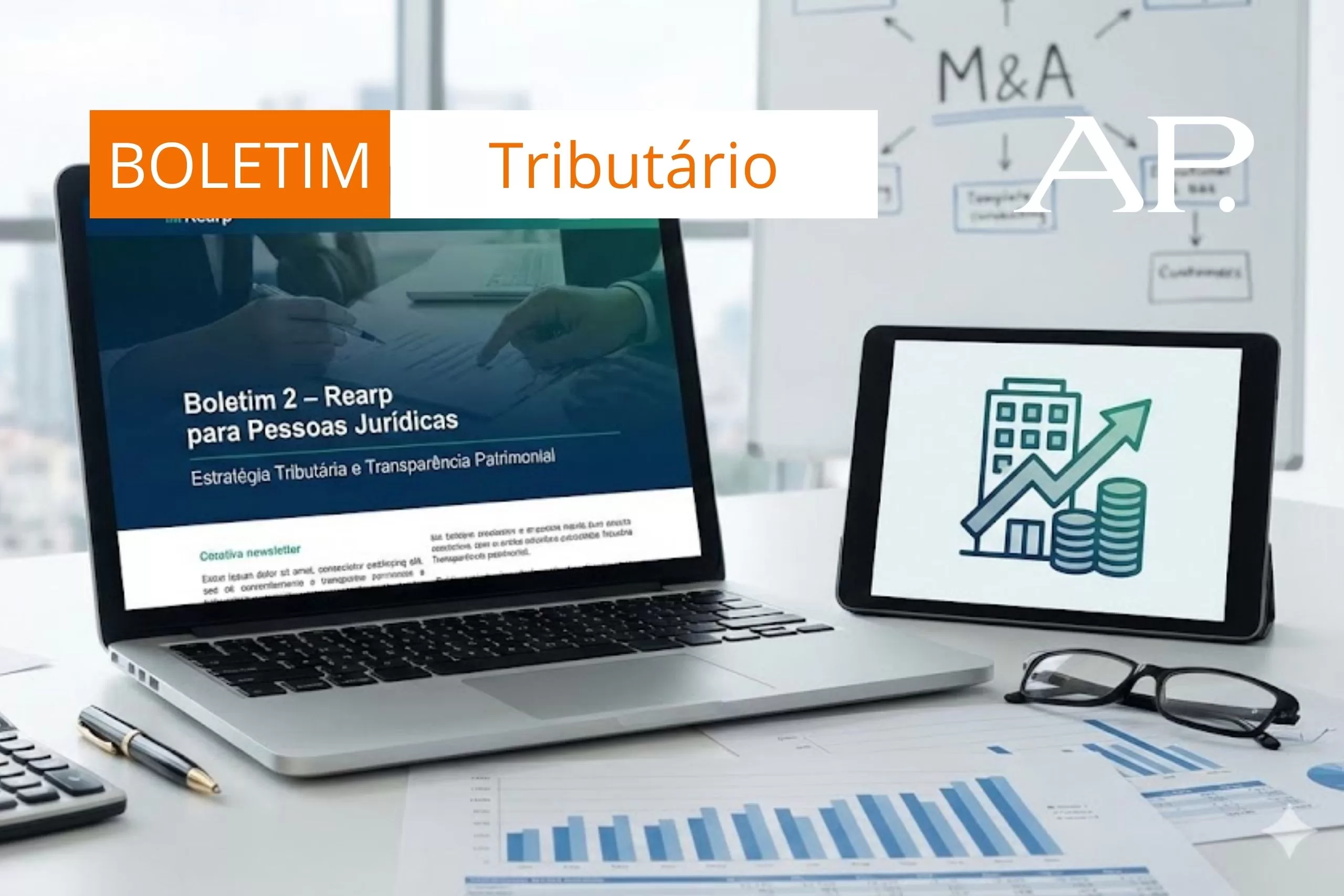Rearp for Companies: Asset transparency and tax strategy
Updating and regularizing assets: practical impacts and compliance challenges
Following on from the series on Law 15.265/2025 (DOU of 21/11/2025 – extra edition), we analyze the impacts on companies. The deadline for joining Rearp is 19/02/2026, with payment in cash or in installments of up to 36 installments.
Updating assets and tax consequences
Rearp dialogues with previous regimes for updating assets, but innovates by allowing legal entities to update permanent assets to market value, with definitive taxation of IRPJ at a rate of 4.8% and CSLL at a rate of 3.2% on the difference. This update improves the quality of financial statements and reinforces governance practices, especially in M&A operations. However, it does not generate the right to tax depreciation, which limits future economic benefits. Companies with high-value assets will face significant costs, requiring cash flow analysis and accounting impact.
In the regularization modality, the 15% income tax and 100% fine on omitted or misdeclared assets is severe, but it eliminates tax and criminal risks, as well as avoiding assessments that could jeopardize corporate negotiations. It is worth remembering that the sale of assets updated before five years (real estate) or two years (movable assets) invalidates the effects of the Rearp, imposing additional payment of capital gains tax.
Adherence will possibly imply adjustments to the ECD and EFD-Contributions, as well as the submission of the single declaration provided for in the Law. Imagine a company with a property registered for R$10 million and a market value of R$15 million: the Rearp update will result in a cost of approximately R$800,000 (IRPJ + CSLL), but will strengthen its position in negotiations with investors and corporate operations.
Rearp and corporate governance
For companies seeking transparency and a reduction in contingencies, Rearp is a strategic tool, especially when compared to the regime of Law 14.973/2024, which has a more restricted scope. Even without additional incentives (such as the use of depreciation) and given the accounting adjustments required, the program can generate significant gains in governance and legal certainty.
Araújo e Policastro Advogados supports business groups in tax and accounting analysis, ensuring compliance and mitigating risks. In the next newsletter, we’ll explore the new rules for securities lending and hedging operations, which are key for treasuries, fintechs and companies with international exposure.

